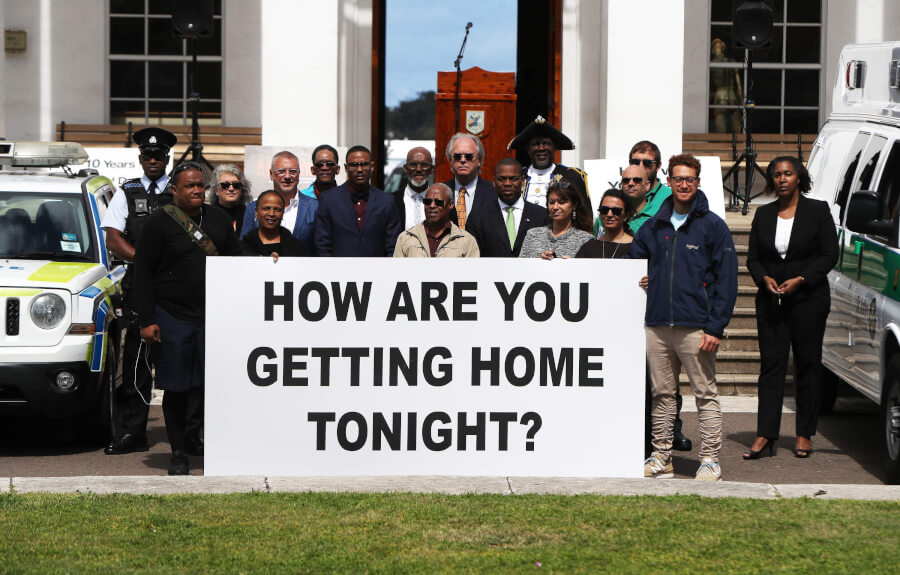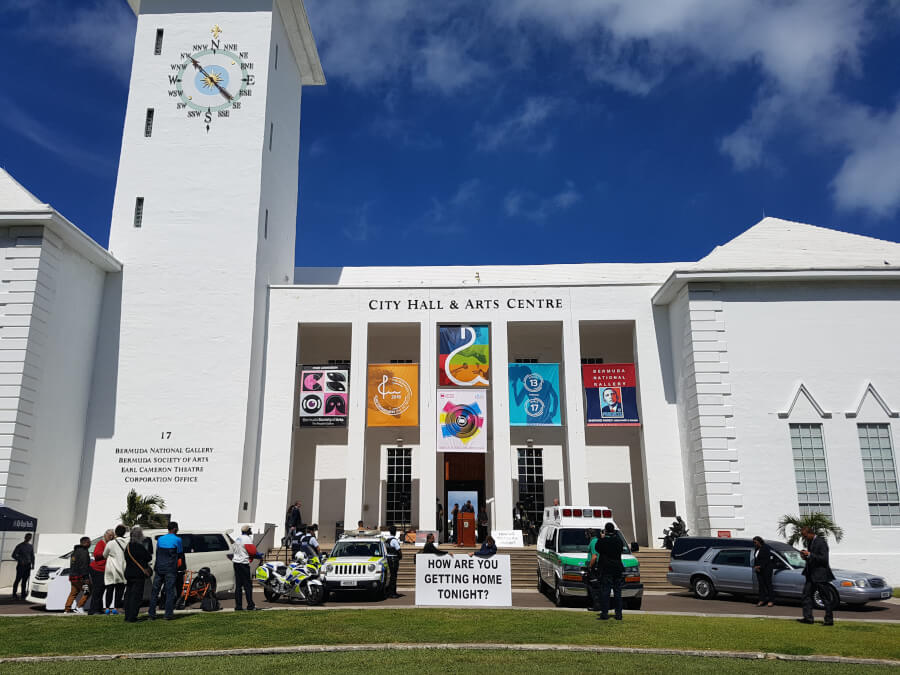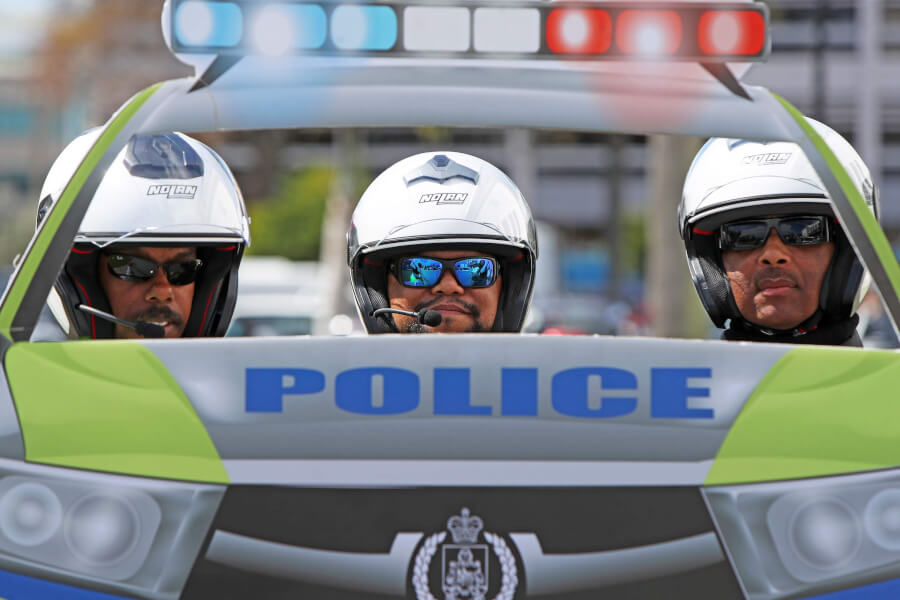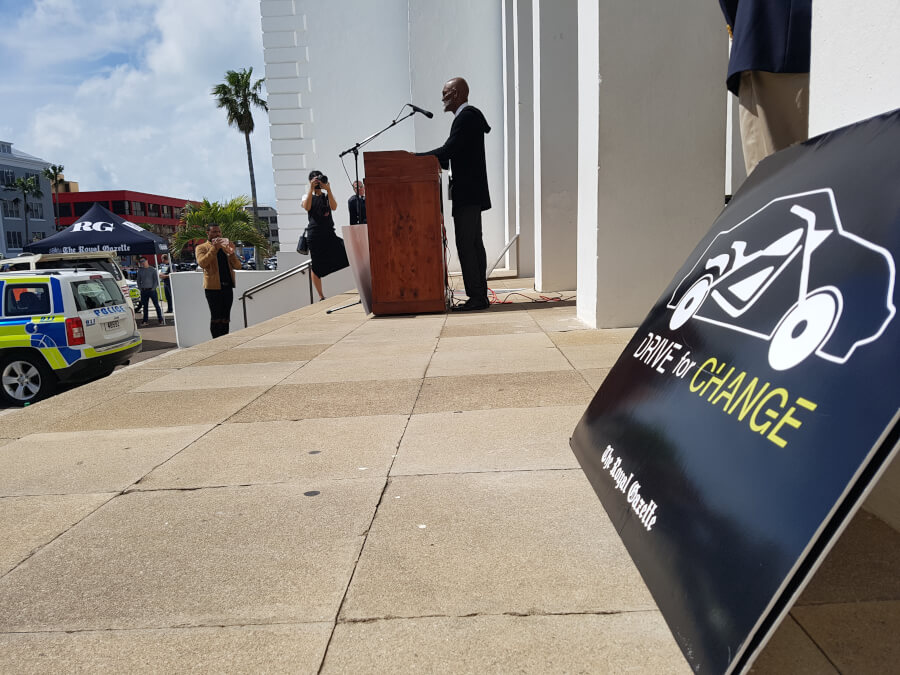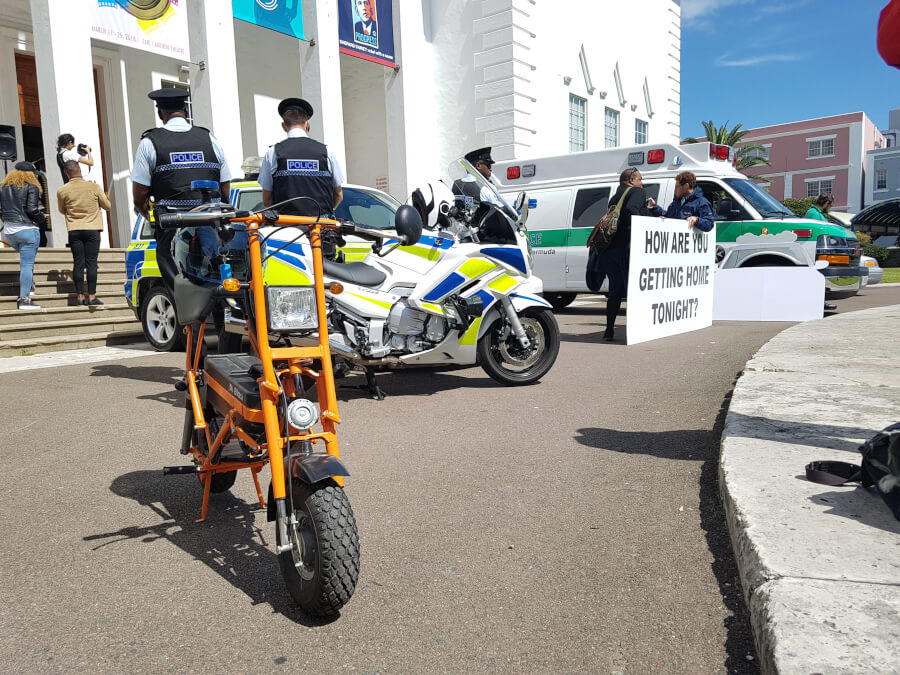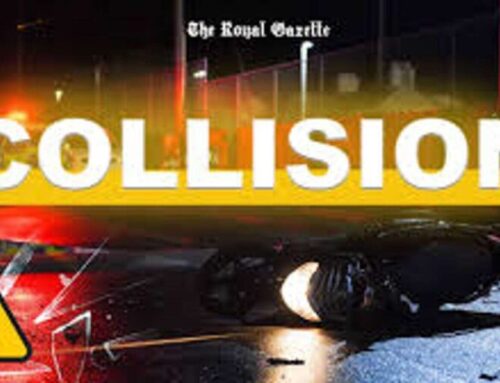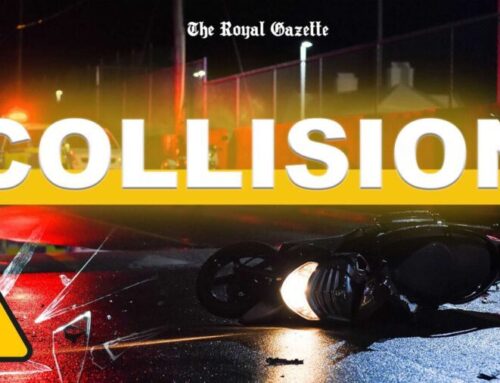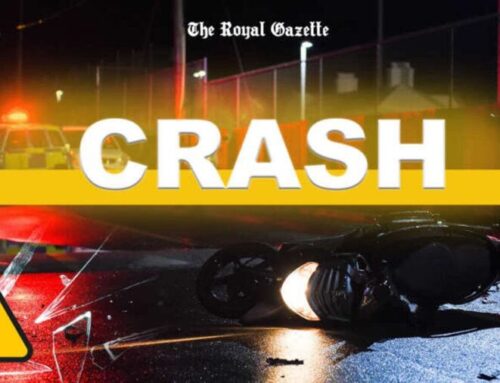A taxi, a police car, an ambulance and a hearse parked outside City Hall yesterday with a huge sign asking members of the public: “How are you getting home tonight?”
The stark message marked the launch of The Royal Gazette’s Drive for Change Impaired Driving Awareness Month.
Bermuda’s main road safety campaigners were front and centre — the Bermuda Police Service, the EMT services, the Ministry of Transport and Regulatory Affairs, the Bermuda Road Safety Council, and anti-alcohol abuse organisation Cada.
The Pearman Funeral Home, which, along with the other funeral homes in Bermuda, is well aware of the human cost of dangerous and careless driving in Bermuda, was also represented.
Campaign partners A Piece of the Rock attended as well as the Bermuda Taxi Association, Cada’s Let Us Drive and the HomeSafe driver service to share information about alternatives ways to travel if under the influence.
The DUI Education Programme was also on hand to highlight existing counselling and education.
Minister of Transport and Regulatory Affairs Walter Roban spoke about the Government’s commitment to road safety and the imminent introduction of roadside breath tests in Bermuda.
Mr Roban said: “This is a crisis that our country faces with road safety.
“It is the responsibility of everyone to address this issue and take responsibility from the Government right down to the average citizen.”
Charles Gosling, Mayor of Hamilton, who introduced the event, called on restaurants, bars, hotels and other businesses that profit from alcohol sales to support the movement for road safety.
His own family firm Gosling’s Rum sponsors Cada’s Let Us Drive free night transport service along with drinks distributor Burrows Lightbourn and title sponsor Bacardi.
Mr Roban said in a past interview with Drive for Change that he would consider joining forces with the private sector to provide more transport and help reduce a problem that contributes to the majority of road injuries and fatalities in Bermuda.
The best estimate is that 75 per cent of road fatalities and injuries involve alcohol or drugs.
But orthopaedic surgeon Joseph Froncioni, who surveyed medical colleagues, said they thought the figure was probably much higher. Dr Froncioni said at the event that the island would have a much better idea of the true figure if existing laws to allow police doctors to demand blood, urine and other fluids from patients were enforced.
The event came the day after Howard Charles became the first road fatality of 2018, although there was no indication that the incident involved impairment.
By Sarah Lagan


